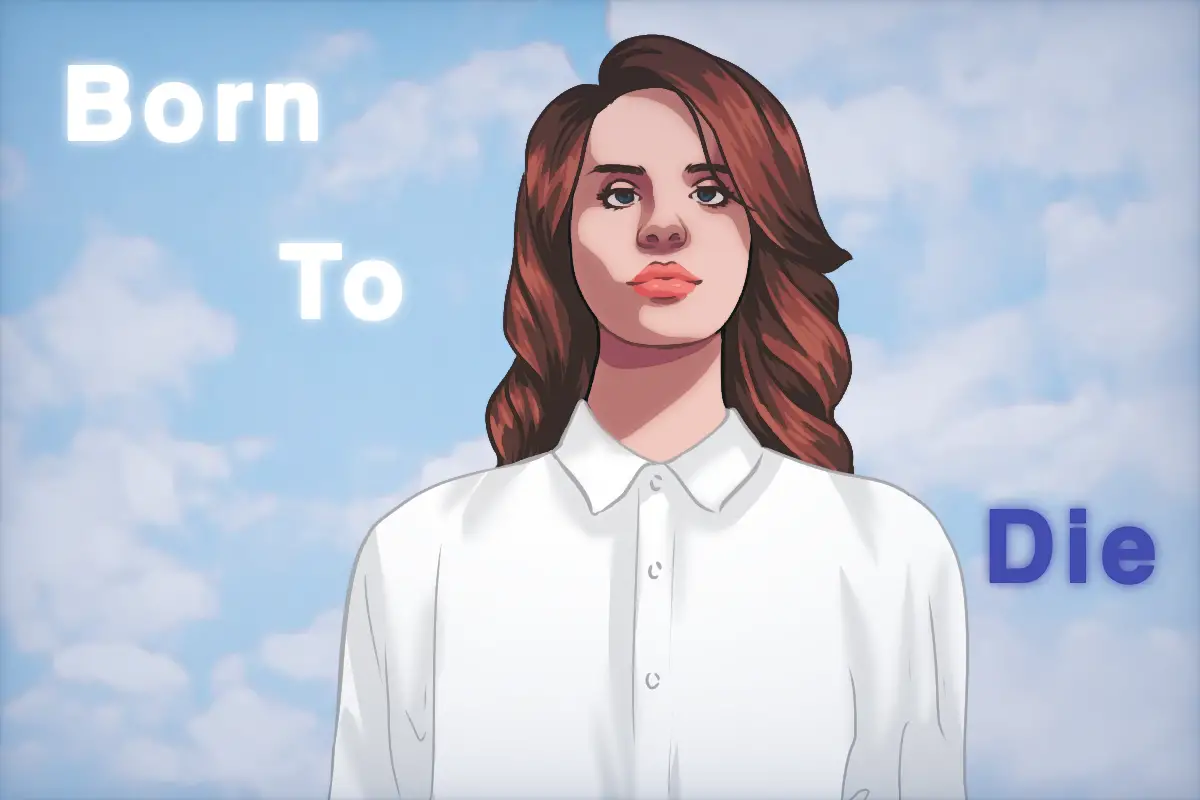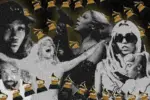“Come and take a walk on the wild side, let me kiss you hard in the pouring rain, you like your girls insane?”
Released over a decade ago, Lana del Rey’s debut album “Born to Die” has remained irreplaceable and unmatchable. Especially when listened to on vinyl, the cracks and scratches help embody the understanding of Lana’s style herself. Preaching about a dark love filled with redemption and money, this album continues to create conversation even now. “Born to Die” is one of the albums that I constantly find myself revisiting, given the heaving desperation in each lyric: “I will love you ‘til the end of time / I would wait a million years,” she pleads. “Promise you’ll remember that you’re mine / Baby, can you see through the tears?”
Lana del Rey was just 26 when she released her first professionally produced debut album “Lana Del Rey” which granted her immediate overnight success. She previously released music under the name “Lizzy Grant” before she created the alter ego of Miss Lana Del Rey. It had taken her the better part of about ten years to reach that identity, and she has not looked back since. On January 27, 2012, the music world was changed for the better with the album drop “Born to Die”, which was said to be her last as well. Revealing her motives for making music, Lana shared with Vogue Magazine that she was more interested in telling her stories rather than making money: “Oh, I don’t think I’ll write another record. What would I say? I feel like everything I wanted to say, I’ve already said.” This could be due to her authenticity, or the fact that she already comes from a long line of wealth. Whatever her reasoning is keeps me thankful, because she since then has gone on to release some of the most artistically developed pieces of music I have yet to see.
Traveling back to the early 2010’s music, a younger generation was craving something beyond the likes of Katy Perry or Britney Spears. Enter Lana; her stripped back music and unique vocals came onto the scene and never seemed to look back. Her emotion and style drew in her fans, and she had this depth and air of coolness that every listener or artist aspired to have. Raw and perfectly-crafted, Lana infused every moment with uncensored emotion, tapping into her fans’ feelings at the same time. “Born to Die” is an homage to true love and an ode to living life on “the wild side.” Ten years later and the title track still holds to be one of my all time favorite Lana songs to date. The way her vocals are mixed with a dark down tempo beat is beyond perfection. The perfect intro to a perfect album. A melancholic and beautiful experience. The general public opinion and harsh backlash did not stop the success of this album; through Tumblr and the overall social trends of that time, Lana del Rey became the chosen one in the eyes of the youth.
Compared to Lana’s subsequent albums, “Born to Die” is a little unfocused and uneven, and some of the production choices felt subpar compared to what the lush, blissful debut “Video Games” had offered. But most of the criticism that surrounded this album 10 years ago has aged like milk. Critics who called her “inauthentic” were usually sexist at worst and holding onto outdated indie rock ideals at best. The people who criticized her image failed to see the commentary within it. And for those criticizing her actual music, most were probably too distracted by negative public opinion surrounding the album to really listen to it. But music criticism only goes so far; “Born To Die” went further.
Del Rey’s debut may be front-loaded, but there is no denying that those songs endure the modern alt-pop era. The sweeping strings and sweet-like-honey hooks off the opening title track are as affecting as any of the best songs of Lana’s most highly-acclaimed albums. “Off to the Races,” with its cinematic lyricism and shapeshifting vocal work, is some of Lana’s best character work and one of her most influential songs. “National Anthem” mixes classic pop-balladry with hip hop in a way that feels like it’s part of pop’s DNA in 2023. But this was revolutionary ten years ago. “Diet Mountain Dew” and “Blue Jeans” perfectly capture the type of alternative pop music that Lana helped popularize. With hints of her future narrative directions for the next albums, she tells a whole story in its weaving of an everlasting love between a foolish girl and a small-time gangster.
“Video Games” sounds as majestic today as it did the day it shook up the internet in 2011. While flashing back to her troubled teenage years filled with her laments of those she lost, she pities any man rather than herself.
Later in 2012, the “Born to Die” album was reissued with the 8-song “Paradise” EP attached. “Summertime Sadness” had a surprising commercial long-tail with a remix the following year that remains del Rey’s highest-charting single. However, Lana del Rey has yet to achieve grammy-winning status despite her many nominations. The tides turned back in her favor by the time she released her follow-up album “Ultraviolence” in 2014. If anything, the critical establishment overcorrected in reviews for her next few albums as if to compensate for “Born To Die’s” initial reception — at least until 2019’s “Norman Fucking Rockwell!” (which is arguably her best).
The locus of attention that Del Rey draws, both positive and negative, has also not faltered over the last decade. Constantly facing backlash, Del Rey rarely lets it affect her life, whether it be after her supposedly awkward SNL Performance or whenever she gets called out for posting her out-of-pocket thoughts. Always persevering through her many close cancellations, she continues to create music that grasps the attention of Generation Z. She still has a bad habit of putting her foot in her mouth, but just about as often as she puts out a song that feels truly life-changing on every listen.

















